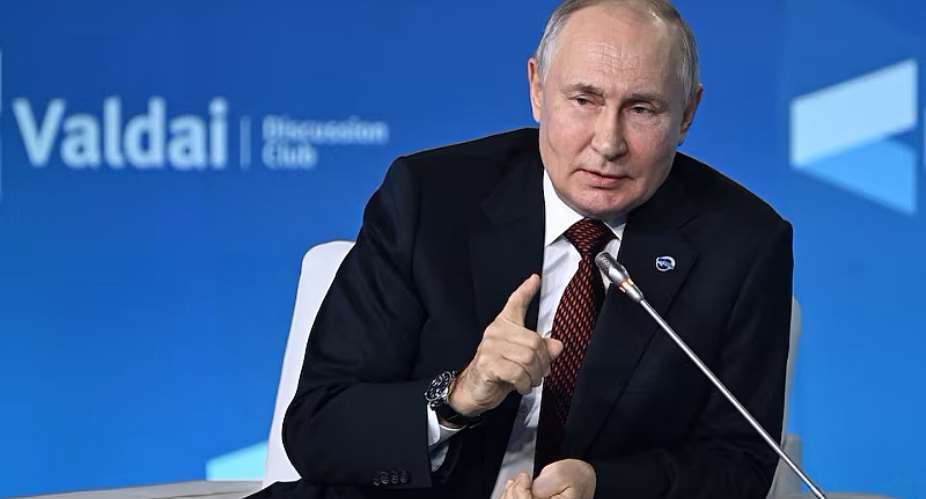Before eight o’clock, armed assailants stormed a suburban Moscow concert hall just as it was filling up for a Friday night rock concert by the veteran band Picnic. They opened fire on the crowd, resulting in the deaths of approximately 133 people and injuries to several others. Shortly after, ISIS-K or ISIS-Khorasan claimed responsibility for the heinous attack. Weeks prior to the incident, the US had warned Russia about ISIS’s intention to carry out attacks and advised American citizens in Russia to avoid crowded places. However, in his election victory speech, a defiant President Putin vehemently denounced the American warnings as “provocative”, accusing the United States of engaging in outright blackmail and attempting to intimidate and destabilize Russian society.
Wouldn’t Russian lives have been saved if Putin had taken the US warning seriously? Who exactly are ISIS-K, and what drives them to target Russia? ISIS-K or ISIS-Khorasan is a terrorist organization primarily active in Afghanistan and Pakistan. They are a branch of the Islamic State (ISIS) and have carried out attacks targeting various entities, including Russia. It emerged in 2015 and has since conducted numerous attacks targeting both civilians and security forces in the region. The group aims to establish an Islamic caliphate and follows the extremist ideology of ISIS.
ISIS-K could potentially target Russia for various strategic reasons. Russia’s involvement in global geopolitics, particularly in conflicts within the Middle East and Central Asia, might make it a perceived threat to ISIS-K. Attacking Russia could be a way for the group to gain attention and showcase its global reach. Russia has been a key player in the Syrian Civil War, providing military support to the Syrian government led by President Bashar al-Assad. Since 2015, Russia has conducted airstrikes against various rebel groups and ISIS targets in Syria, significantly influencing the course of the conflict. Russia’s intervention has helped bolster the Assad regime and maintain its grip on power, while also asserting Russian influence in the region.
Retaliation may also motivate ISIS-K to target Russia, especially if Russia has been involved in military operations against ISIS or its affiliates in regions like the Middle East or Afghanistan. This retaliation could stem from a desire to avenge perceived injustices or escalate ongoing conflicts. Russia has been involved in efforts to stabilize Afghanistan and counter the resurgence of militant groups in the country. In recent years, Russia has engaged in diplomatic talks with various Afghan factions, including the Taliban, aiming to promote peace and stability in the region. On top of that, Russia has provided military assistance to the Afghan government to combat extremist groups, such as ISIS-K, operating in Afghanistan and threatening regional security.
Besides, ideological differences may drive ISIS-K to view Russia as a target. The group’s extremist ideology considers anyone who does not adhere to its interpretation of Islam as enemies, including secular governments like Russia. Russia’s predominantly non-Muslim population with a significant Muslim minority could be seen as ideologically opposed to ISIS-K’s beliefs. ISIS-K may view Russia as a target due to ideological differences, particularly in their interpretations of Islam and geopolitical goals. An example of this could be ISIS-K’s opposition to Russia’s military involvement in Syria, which they perceive as an intrusion on their vision of establishing a caliphate and as an affront to their extremist Sunni ideology. This opposition could lead ISIS-K to target Russia and its interests as part of their broader jihadist agenda.
Exploiting regional tensions could also be a factor in ISIS-K’s decision to target Russia. If there are existing tensions between Russia and certain groups or communities in regions where ISIS-K operates, the group might exploit these tensions to further its own agenda by attacking Russian interests. One example of regional tensions that ISIS-K could exploit in targeting Russia is the conflict in Afghanistan. Russia has historical interests and concerns in the region, including its involvement in the Soviet-Afghan War and ongoing geopolitical interests in Central Asia. ISIS-K could exploit any tensions between Russia and groups in Afghanistan, such as the Taliban or other regional powers, to further its own agenda and provoke instability.
On top of that, propaganda and recruitment efforts could play a role in motivating attacks on Russia by ISIS-K. Attacks on a powerful country like Russia can serve as potent propaganda tools, attracting new recruits and garnering support among sympathizers. By demonstrating their ability to strike against a major global power, ISIS-K may aim to inspire others to join their cause.





 We saved $57.9million from procurement of new verification devices, registration...
We saved $57.9million from procurement of new verification devices, registration...
 Ejisu by-election: Aduomi is a betrayer – Ahiagbah
Ejisu by-election: Aduomi is a betrayer – Ahiagbah
 Dumsor: I’ll be in police custody if I speak, I vex — DKB
Dumsor: I’ll be in police custody if I speak, I vex — DKB
 We'll give daily evidence of Akufo-Addo's supervised thievery from our next gene...
We'll give daily evidence of Akufo-Addo's supervised thievery from our next gene...
 Asiedu Nketia crying because they've shared the positions and left him and his p...
Asiedu Nketia crying because they've shared the positions and left him and his p...
 Mahama's agenda in his next 4-year term will be 'loot and share' — Koku Anyidoho
Mahama's agenda in his next 4-year term will be 'loot and share' — Koku Anyidoho
 If you're president and you can't take care of your wife then you're not worth y...
If you're president and you can't take care of your wife then you're not worth y...
 Foreign Ministry caution Ghanaians against traveling to Northern Mali
Foreign Ministry caution Ghanaians against traveling to Northern Mali
 GHS warns public against misuse of naphthalene balls, it causes newborn jaundice
GHS warns public against misuse of naphthalene balls, it causes newborn jaundice
 Our education style contributes to unemployment - High Skies College President
Our education style contributes to unemployment - High Skies College President
